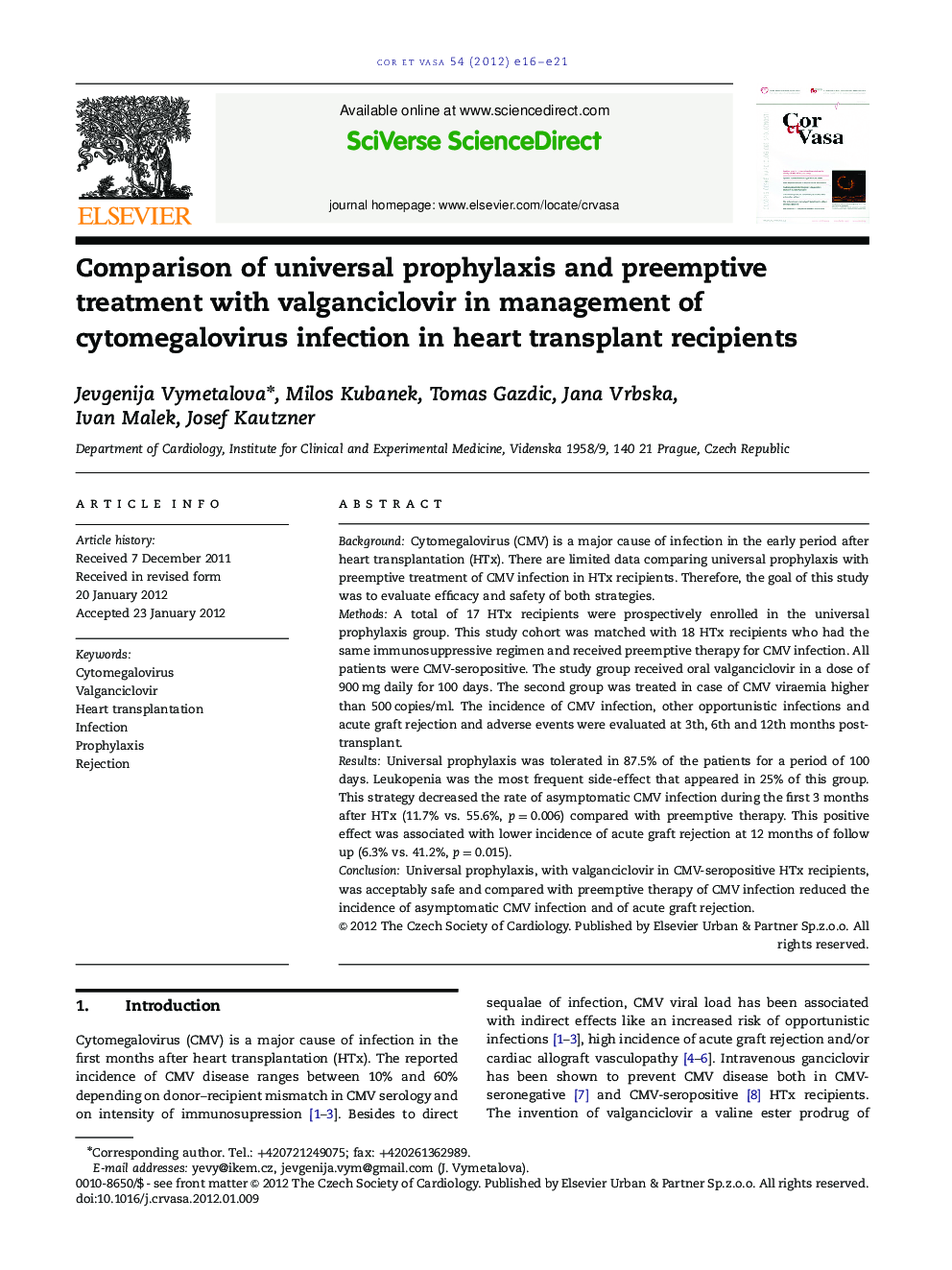| Article ID | Journal | Published Year | Pages | File Type |
|---|---|---|---|---|
| 2728477 | Cor et Vasa | 2012 | 6 Pages |
BackgroundCytomegalovirus (CMV) is a major cause of infection in the early period after heart transplantation (HTx). There are limited data comparing universal prophylaxis with preemptive treatment of CMV infection in HTx recipients. Therefore, the goal of this study was to evaluate efficacy and safety of both strategies.MethodsA total of 17 HTx recipients were prospectively enrolled in the universal prophylaxis group. This study cohort was matched with 18 HTx recipients who had the same immunosuppressive regimen and received preemptive therapy for CMV infection. All patients were CMV-seropositive. The study group received oral valganciclovir in a dose of 900 mg daily for 100 days. The second group was treated in case of CMV viraemia higher than 500 copies/ml. The incidence of CMV infection, other opportunistic infections and acute graft rejection and adverse events were evaluated at 3th, 6th and 12th months post-transplant.ResultsUniversal prophylaxis was tolerated in 87.5% of the patients for a period of 100 days. Leukopenia was the most frequent side-effect that appeared in 25% of this group. This strategy decreased the rate of asymptomatic CMV infection during the first 3 months after HTx (11.7% vs. 55.6%, p=0.006) compared with preemptive therapy. This positive effect was associated with lower incidence of acute graft rejection at 12 months of follow up (6.3% vs. 41.2%, p=0.015).ConclusionUniversal prophylaxis, with valganciclovir in CMV-seropositive HTx recipients, was acceptably safe and compared with preemptive therapy of CMV infection reduced the incidence of asymptomatic CMV infection and of acute graft rejection.
